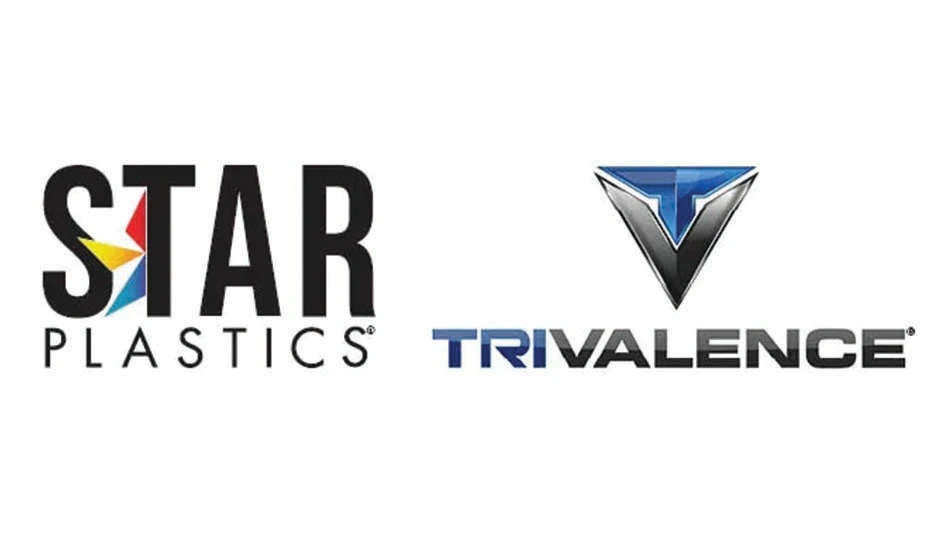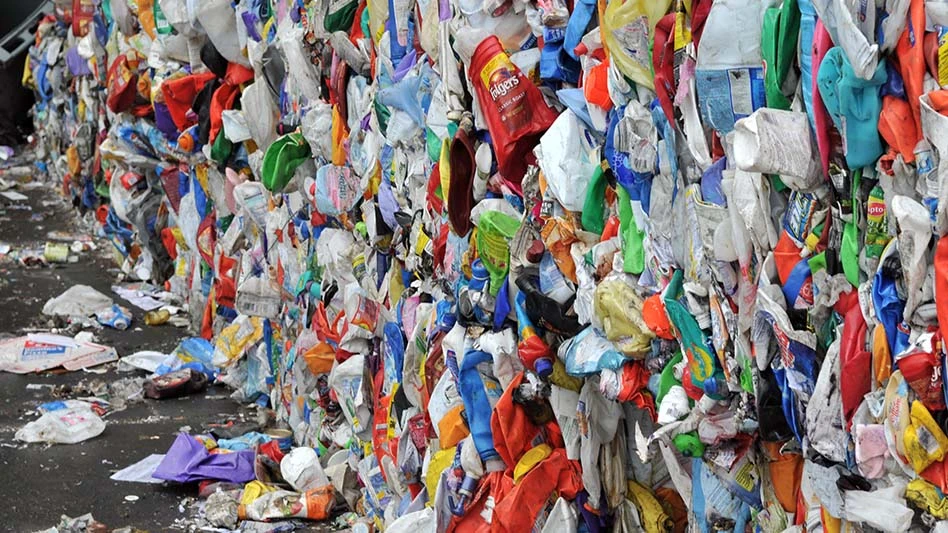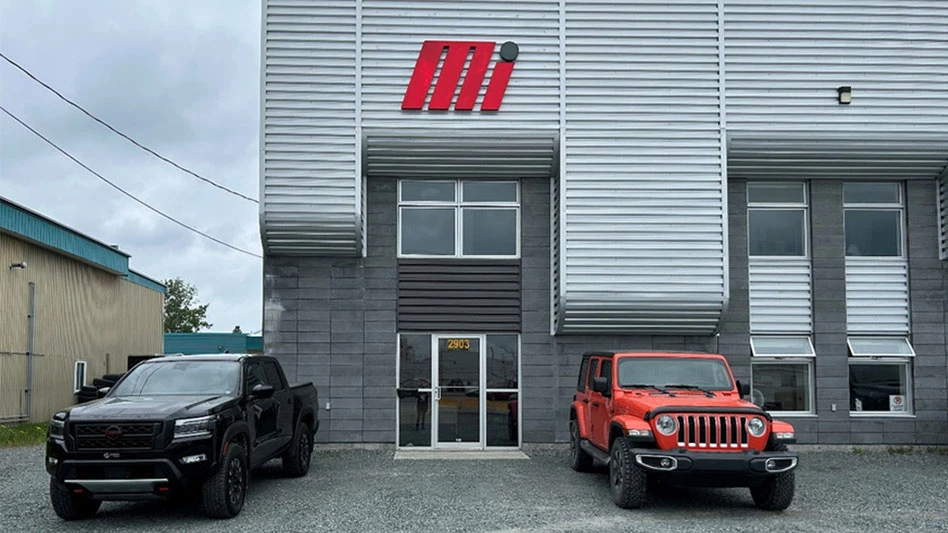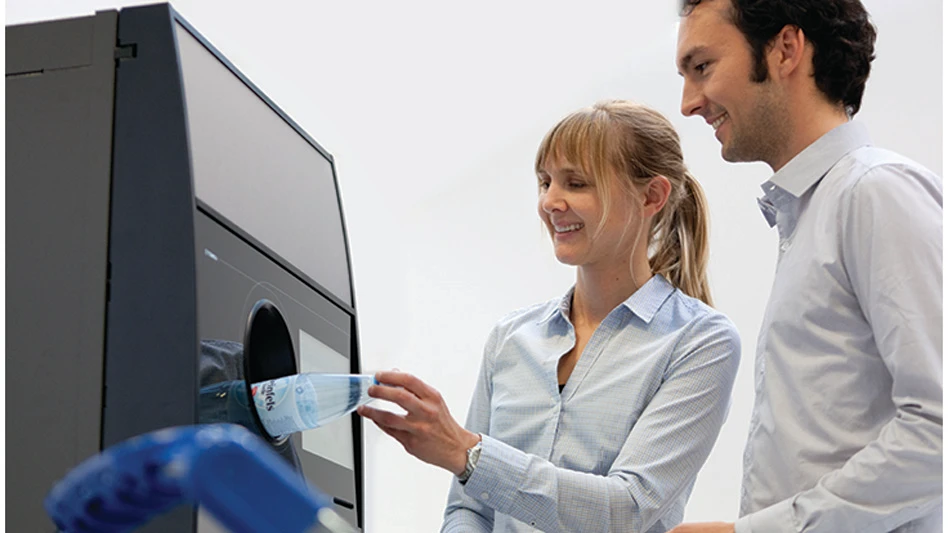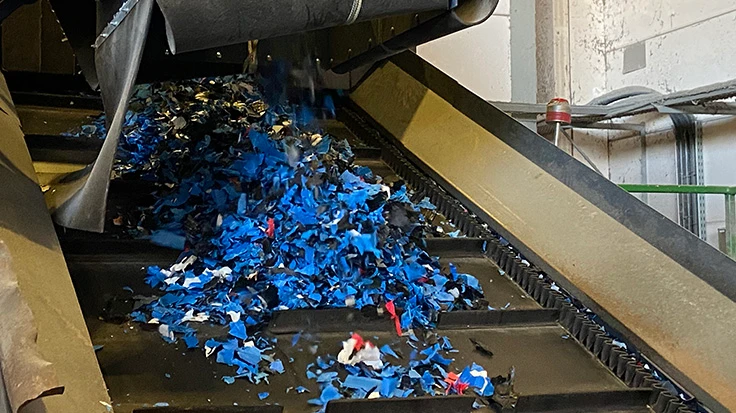
Photo supplied by Steinert GmbH.
Cologne, Germany-based Steinert GmbH says several upgrades and new features have led to the “fifth evolutionary stage” of its UniSort PR sorting technology for recyclable materials.
The company points to “better performance, simplified maintenance [and] new software” as aspects of the new version of UniSort PR, called EVO 5.0.
In a press release about the new features of UniSort PR EVO 5.0, Steinert describes its Intelligent Object Identifier as “an artificial intelligence (AI)-supported object detection system for sorting machines” that can “make for a more stable sorting process, while also improving sorting results.”
Steinert adds, “This improvement has come about through software and the latest developments in the field of machine learning, especially in artificial neural networks.”
The company says the UniSort PR EVO 5.0 “has been put through its paces in practical trials since the start of 2019,” and offers several new or upgraded features, including:
- dynamic calibration designed to monitor the spectrum of the belt lighting;
- revamped light boxes designed to ensure improved detection while also simplifying maintenance, combined with software updates;
- what the company calls optimized valve blocks designed to deliver a consistently precise separation of flowing materials; and
- an optional automatic white balance designed to reduce the intensity of maintenance, eliminate further manual stages and to make new levels of flexibility possible.
“The UniSort PR EVO 5.0 reflects Steinert’s years of experience gained from several UniSort generations and the huge amounts of data that have been processed,” states the firm. “This, in turn, enables users to respond flexibly to changing material flows and recognize, but also most importantly tap into new potentials.”
Steinert is a family-owned business founded in 1889 in Cologne focusing on sensor sorting and magnetic separation for municipal solid waste (MSW), metal recycling and mining. The company has 340 employees, approximately 100 million euros ($111 million) in annual sales and operates from offices and subsidiaries in Germany, Australia, Brazil and the United States.
Sponsored Content
SENNEBOGEN 340G telehandler improves the view in Macon County, NC
An elevated cab is one of several features improving operational efficiency at the Macon County Solid Waste Management agency in North Carolina. When it comes to waste management, efficiency, safety and reliability are priorities driving decisions from day one, according to staff members of the Macon County Solid Waste Management Department in western North Carolina. The agency operates a recycling plant in a facility originally designed to bale incoming materials. More recently, the building has undergone significant transformations centered around one machine: a SENNEBOGEN telehandler (telescopic handler).
Get curated news on YOUR industry.
Enter your email to receive our newsletters.
Latest from Recycling Today
- Commentary: Expanded polystyrene: 98 percent air, 2 percent plastic, 100 percent misunderstood
- AMCS appoints general manager for North America
- How tariffs, regulations affect LIBs recycling in US, EU
- Schwan Cosmetics introduces packaging free of styrene, ABS
- Aimplas coordinates EU project focused on solar panel circularity
- Fresh Perspective: Brandon Sacca
- New Hampshire the Beautiful Inc. awards recycling equipment grants
- Cards acquires National Waste of Tulsa, Oklahoma




